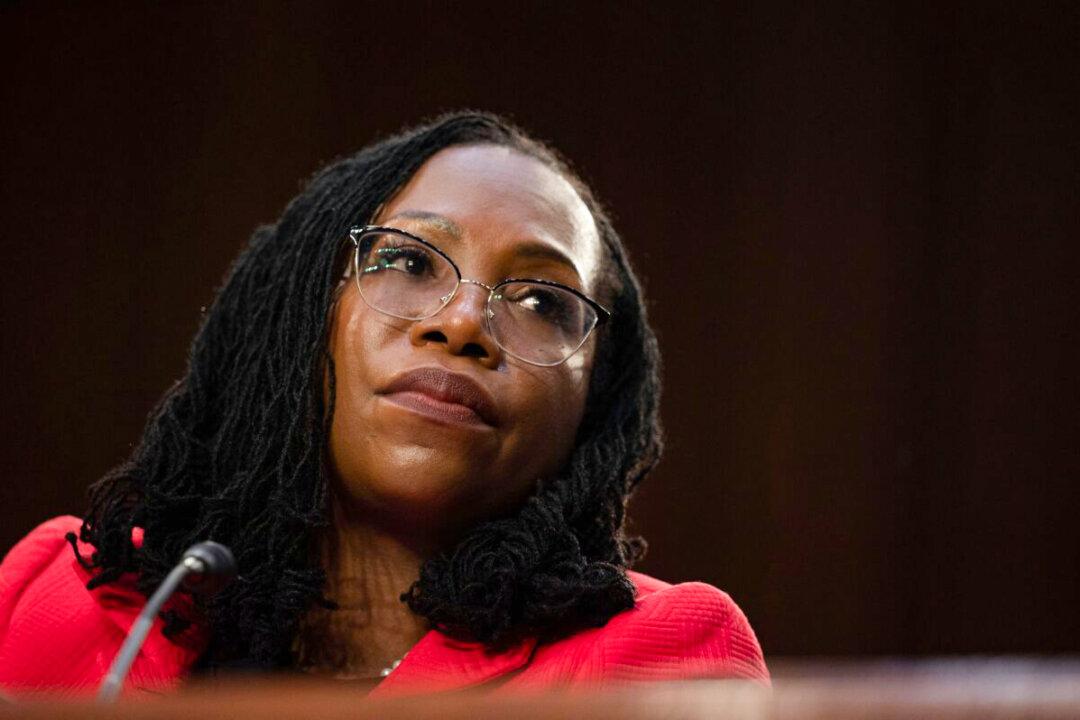President Joe Biden’s Supreme Court nominee on March 22 refused to define what a woman is or say whether she agreed that punishments for possessing or distributing child pornography should be strengthened.
Judge Ketanji Brown Jackson was asked during day 2 of her confirmation hearings whether she could provide a definition of the word “woman.”





